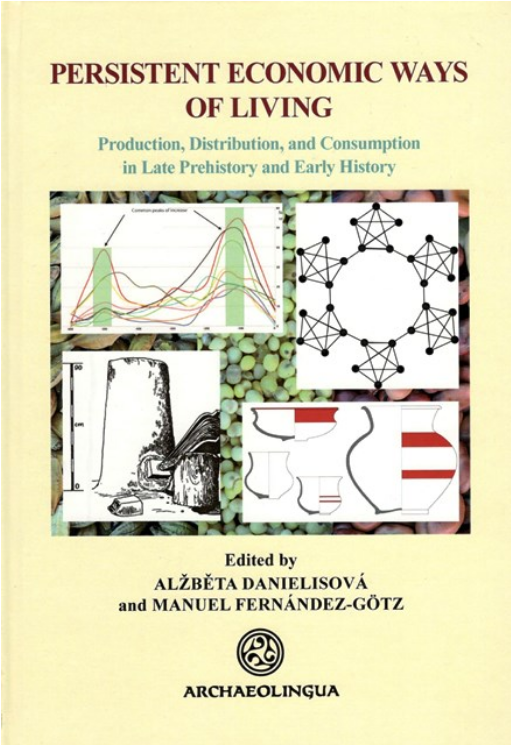Description
Alžběta Danielisová and Manuel Fernández-Götz: Persistent Economic Ways of Living. Production, Distribution, and Consumption in Late Prehistory and Early History / Archaeolingua 2015
Publisher: Archaeolingua (August 31, 2015)
Language: English
Hardcover: 243 pages
Dimensions: 7.6 x 0.6 x 11.2 inches
Language: English
Hardcover: 243 pages
Dimensions: 7.6 x 0.6 x 11.2 inches
ISBN: 9639911704 / ISBN-13: 9789639911703 / 978-9639911703
About the Author:
Manuel Fernández-Götz is Lecturer in Archaeology at the University of Edinburgh, Executive Board Member of the European Association of Archaeologists, and winner of the Philip Leverhulme Prize in Archaeology 2016. His research focuses on Iron Age societies in Central and Western Europe, the archaeology of identities, and the archaeology of the Roman conquest.
Description:
This edited volume focuses on long-term economic structures reflected in material culture, analyzing the emergent processes that affected production mechanisms and embedded economic behavior. It focuses on approaches and methods for ascertaining levels of societal complexity through the detection of the character and aspects of basic economic processes (involving food production, redistribution, exchange, and specialization) common for most past European societies. The volume shows different ways in which we can approach these processes. From the more traditional methods like artefacts studies, comparative analysis of analogies and ethnographic parallels we are able to infer and develop theoretical models applied and tested through modern methods of computer modelling and social simulation. The wide range of presented papers allows a synthetic review of socio-economic developments throughout the long period from Late Prehistory to the Middle Ages against the background of spatial or social structures at a supra-regional level. The contributions included in this volume are believed to constitute a useful starting point for similar studies that try to combine long-term analysis with short-term developments transcending spatial and chronological barriers from a comparative perspective and bring together different research experiences.












